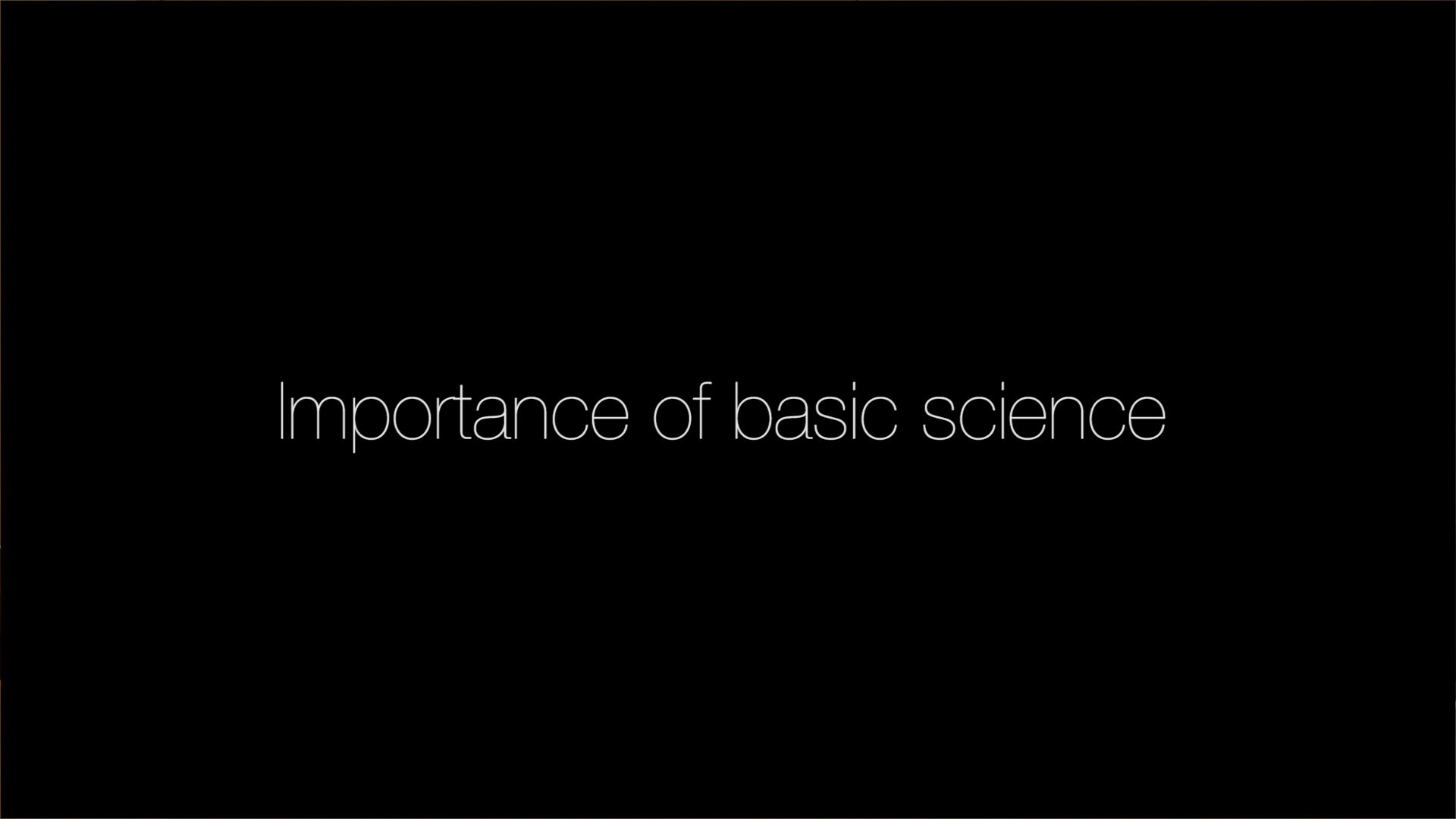TRANSCRIPT
“I have never chosen what I wanted to do because I thought it would be useful to humanity. I do believe that science in general is useful to humanity. And ironically some of the things we discovered when we were in Stanford – discovering homeobox genes and HOX genes and so on – have turned out to be incredibly useful, or important, for the development of medical science. But if I had said to anybody, or thought to myself, "I'm going to look at fly homeotic mutations because it's going to be good for medical science," I wouldn't have convinced myself or anybody else, not in 1980. Nobody for one moment believed that mutations that gave flies an extra pair of wings were going to be medically relevant.”
-Michael Acam, Ph.D.
Head of Department and Professor of Zoology, University of Cambridge
“I think I've been very lucky that the thing I got excited about way back when I was a student has turned out to be even more interesting and even more important than I'd ever anticipated, with medical implications that I never would have gathered because I just wanted to work on it because I thought it was so cool. But I guess that's another thing – some people approach science, biomedical science, because they really want to alleviate human disease, and in my own case, I think it's fantastic when something we find out does have medical implications, but I was having a conversation with a colleague who's a medic... that was always what drove him from a very young age, which is great, he's done some brilliant work, but I realized that in my own case, even if people never got sick, I'd still be interested in how cells work just because I find that so inherently fascinating. I guess I'm very much a diehard basic scientist in that way.”
-Margaret Scott Robinson, Ph.D.
Professor of Molecular Cell Biology, University of Cambridge
“So I went back to clinical medicine again and I thought, "Well now, am I more interested in Mrs. Jones' hemoglobin, or hemoglobin?" And I thought, hemoglobin really.”
-Joe Herbet, Ph.D., M.D.
Professor of Clinical Neuroscience, University of Cambridge
“I think very much in terms of curing patients still, yes, I'm a doctor and I think in terms of curing my patient. When you say translational medicine they think of patients and they think of hospital wards, and you know, trying to cure patients as such, but you can't actually translate a treatment that hasn't yet been invented. And so you have to be prepared to go back in translational medicine to an appropriate point, and quite often the place you have to go back to really is pretty basic biology until you can sort of build up from there to something that might look like a treatment. But if you're not prepared to go back to the basics you'll waste your time messing around with things that nobody understands.”
-James Fawcett, Ph.D., M.D.
Head of Department and Professor of Clinical Neuroscience, University of Cambridge
“The wind certainly blows in translational directions at the moment. I think it would be quite a brave newly appointed faculty member that didn't try to bend their research towards feeling like they also had translational slant to it that they could sell to a funding agency. It's not that I have... a lot of the most important break through are translational break throughs, but equally we need to protect the basic science too. But you're not going to protect it if you don't get funded. So you have to compromise a little way.
It's the short-termness of that translational benefit that I think may be the problem. The translational benefit can come from basic research. Milstein or Sanger developing sequencing of proteins and DNA – was he writing a grant saying where there was going to be a spin off company coming from those? Where would we be now if we didn't have DNA sequencing and protein sequencing? They are the really basic underpinning transformative things on which the translational utterly depends – where would we be without PCR? That wasn't a translational project. So I think the concern is not that science shouldn't have as a very legitimate aim the need to try and translate basic science into something that brings benefit to mankind – it's a question of how short-term it can be without jeopardizing the basic underpinning science. Of course against that, some of the funders would tell us well you've been telling us that for twenty years and you still haven't produced your breakthrough that's translative.”
-Colin Taylor, Ph.D.
Professor of Pharmacology, University of Cambridge

